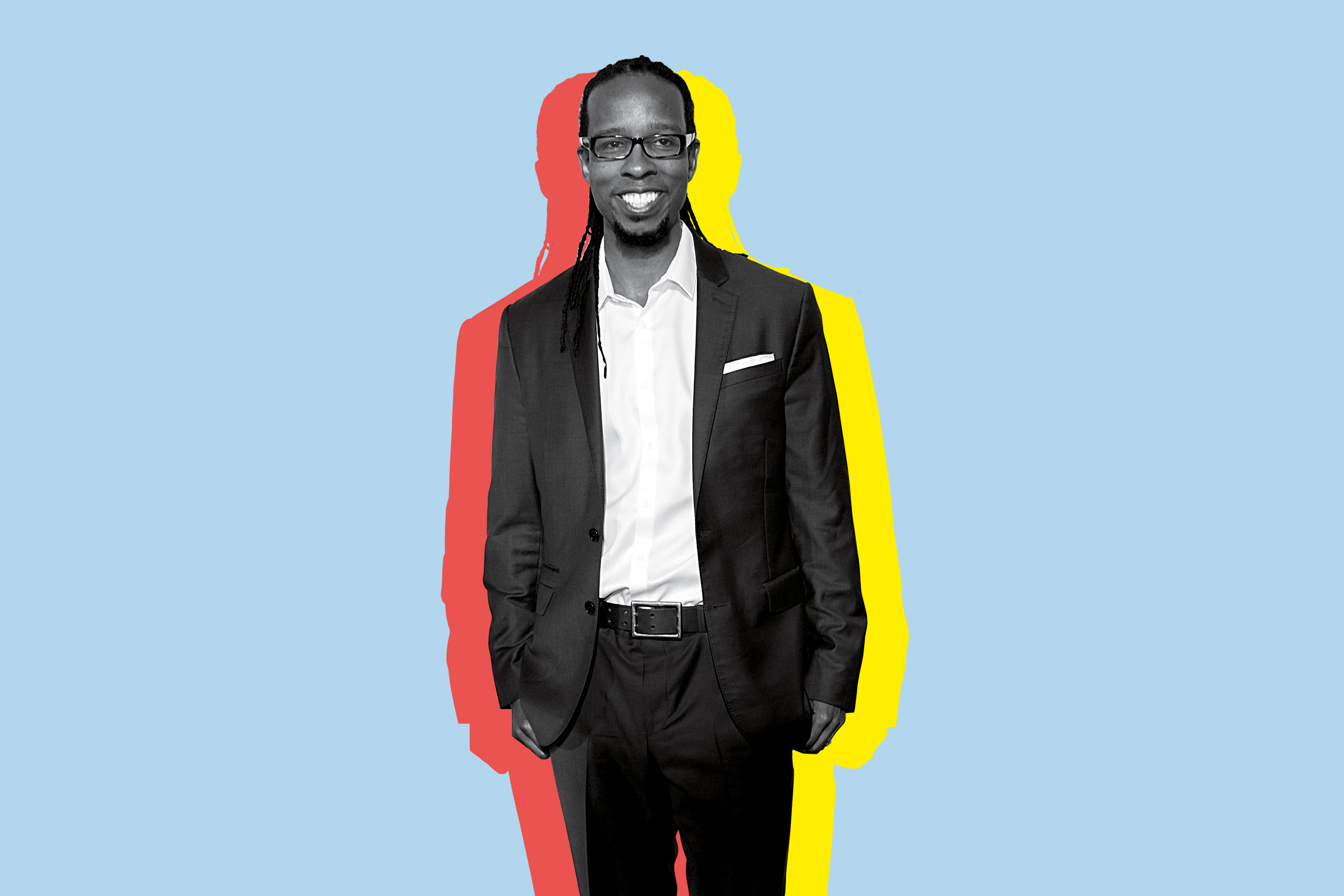
Ibram X. Kendi, the National Book Award winner, talks to TIME about “the R word,” capitalism and his new book, How to Be an Antiracist.
Your new book combines theory and memoir. Why did you decide to weave in your own story?
I did not want to use personal narrative; I’m a very private person. But I was trying to think of a way to convey the journey one has to embark on to be antiracist, and eventually I relented.
The journey included your own moments of racism as well as seeing it in influential figures from black history. How do you reconcile that with your admiration for them?
Some of these leaders started out their activist careers thinking like many other people did, thinking part of the problem was with black people. The more they engaged in the problem, the more they realized there was in fact nothing wrong with black people and everything wrong with racist policy and power. Seeing those stories–somebody like W.E.B. Du Bois, who grew over the course of his life–is actually what inspires me the most.
You make the point that racist is a crucial descriptive word, not a slur, but many people see it as an insult. Is it possible to reclaim the word?
It’s absolutely necessary. Part of the reason so many Americans are so defensive is because we’ve been led to believe that racist is a fixed category, that it’s a tattoo, it’s a label. Of course they’re going to say, “I’m not a racist, I’m not a bad person.” But racist is describing what you’re saying in the moment.
What’s antiracist, as opposed to not racist?
I’ve argued there’s no such thing as “not racist.” Racist ideas suggest a racial hierarchy among racial groups. Antiracist ideas suggest that no racial group is better or worse than another. There’s really no in-between state of neutrality.
What have you thought of the response to President Trump’s racist tweets?
I first and foremost think that it is a good thing so many public institutions and officials have been willing to identify racism, because Americans have a difficult time using the R word–just as the Americans writing the U.S. Constitution had so many conversations about slavery but never used the S word [in it]. On the other hand, we have to be crystal clear when we classify something as racist why we’re classifying it as racist.
In your discussion of class and race, you argue it doesn’t track for Senator Elizabeth Warren to call herself a capitalist but propose radical change to the U.S. economy. What have you thought of her defenses of capitalism as she campaigns for 2020?
What’s really happening, particularly among the left, is a debate over how we define capitalism. What I tried to show in [Antiracist] is that you can’t separate capitalism from racism, that they were birthed during the same period in the same area and have grown together, damaged together and will one day die together.
Stamped From the Beginning, your book on the history of racist ideas, won the National Book Award for Nonfiction, but you describe doing that research as taking a psychic toll. How was it to spend time with antiracism instead while researching this one?
I found the experience challenging, just in a different way. For How to Be an Antiracist I was primarily turning a critical eye on myself. Fortunately, I hadn’t believed many of the most subversive things that people have said for hundreds of years about black people, but I have said some pretty bad things.
And you end the book on a note of hope that antiracism can prevail.
I’m hopeful primarily because of my understanding of history. There’ve been so many times that the impossible has happened.
More Must-Reads from TIME
- Why Trump’s Message Worked on Latino Men
- What Trump’s Win Could Mean for Housing
- The 100 Must-Read Books of 2024
- Sleep Doctors Share the 1 Tip That’s Changed Their Lives
- Column: Let’s Bring Back Romance
- What It’s Like to Have Long COVID As a Kid
- FX’s Say Nothing Is the Must-Watch Political Thriller of 2024
- Merle Bombardieri Is Helping People Make the Baby Decision
Write to Lily Rothman at lily.rothman@time.com